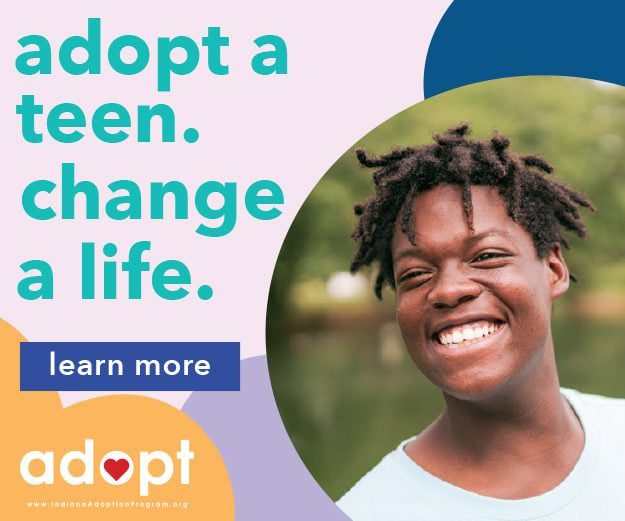What if a warm meal and a kind word could change someone’s day — or even save their life?
In Indianapolis, a unique partnership is doing just that.
Community Health Network and Meals on Wheels of Central Indiana have joined forces to combat food insecurity and social isolation among vulnerable populations. Together, they provide approximately 3,000 meals each month, ensuring that seniors and others with limited mobility can access nutritious food and a lifeline to the outside world.
“We really don’t do anything alone,” said Jill Christiansen, vice president of social accountability for Community Health Network. “We really believe in strong partnerships with community organizations who are working to improve the health of the communities we serve as well, and so Meals on Wheels is one of those partnerships.”
The partnership leverages Community Health Network’s expansive health care network, including Community Hospitals North, South and East, to prepare meals for eligible individuals. These meals cater to various dietary needs, from low-sodium to diabetic-friendly options, ensuring recipients receive sustenance and support for their overall health.
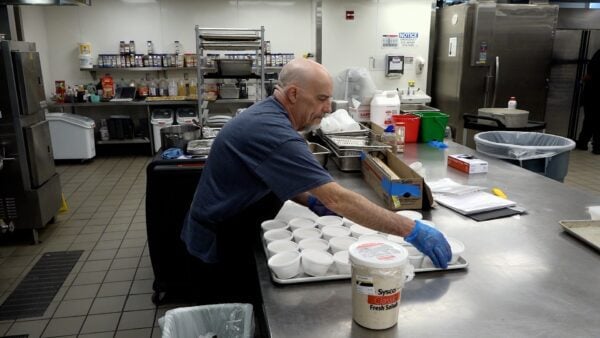
“We want to be able to provide and try to teach, educate and provide some sort of nutrition,” said Jacob Hinshaw, production manager at Community East Hospital. “It’s hard for some people, especially if you don’t have the means or transportation available, to provide yourself a nutritious meal.”
Community East is responsible for producing about 1,000 meals per month, a task that Christiansen finds very rewarding for both employees and recipients.
“Folks want to work for an organization that is giving back and is involved in the community,” Christiansen said. “There has been such an enormous amount of support for this program from our frontline staff to leadership and partnerships like this across the network. Employees can come to work every day and feel like they’re making a difference.”
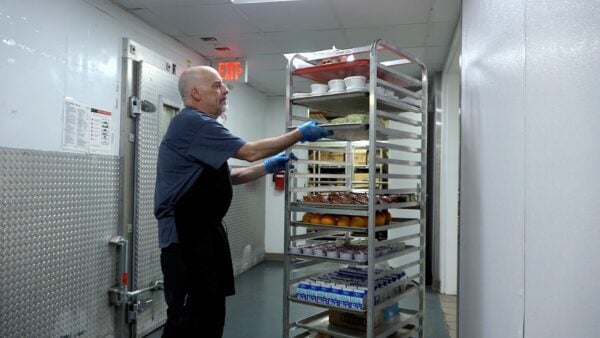
Food insecurity and malnutrition are ongoing challenges for many Indianapolis residents, particularly among seniors and those with chronic illnesses; for individuals who are homebound or face physical challenges, accessing groceries or preparing meals can be nearly impossible.
That’s where this partnership steps in.
Community Health Network’s role extends beyond simply providing meals. The organization addresses a broader spectrum of needs by collaborating with Meals on Wheels. For example, regular meal deliveries ensure nutritional requirements are met and allow volunteers to check on recipients’ well-being.
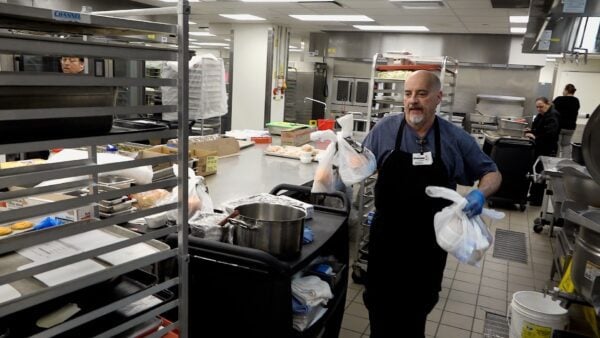
“We have a program called Serve 360 at Community Health Network, which is our caregiver volunteer program,” Christiansen said. “In addition to making the meals, we partner with Meals on Wheels, providing volunteerism. We partner with organizations across Central Indiana, Meals on Wheels being one of them, and we promote volunteer opportunities, and we encourage our caregivers to volunteer.”
Social isolation is another significant issue among the program’s target population. Many recipients live alone and have limited interactions with others. Volunteers delivering meals provide much-needed companionship, a friendly smile or a brief chat at the door. This human connection can be as vital as the food.
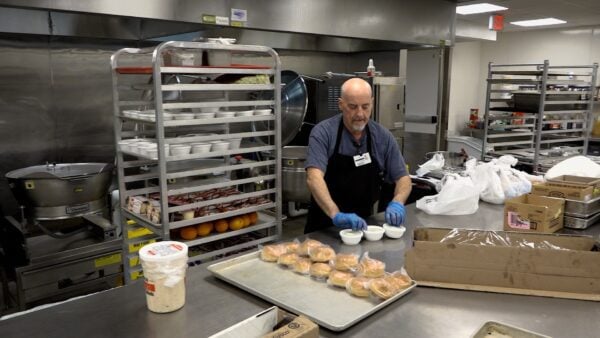
“I think a lot of people love what we do because they really get to be involved and give back, so I think that’s a big component from our caregiver side,” Christiansen said. “From the patient side, I think Meals on Wheels provides an opportunity for seniors and others to live more independently.”
This collaboration underscores a shared mission: to uplift the community through care and compassion. While food delivery is at the heart of the initiative, its benefits extend far beyond the plate. Recipients gain nourishment and a sense of belonging, while volunteers and partners experience the fulfillment of making a difference.
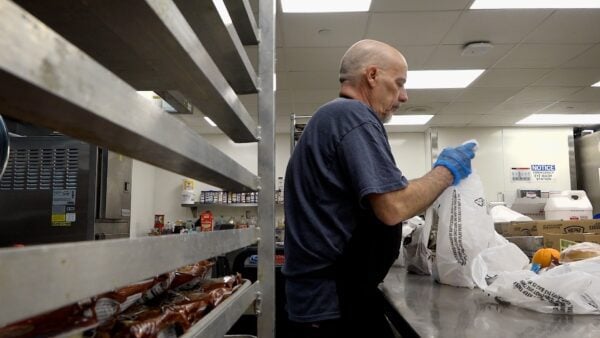
“Much of what we do happens outside our hospital’s four walls,” Christiansen said. “Improving the health of the communities we serve, whether they ever walk through our front doors or not.”
For more information about Meals on Wheels, visit mealsonwheelsindy.org.
This reporting is made possible by a grant from the Indianapolis African-American Quality of Life Initiative, empowering our community with essential health insights. https://iaaqli.org/
To read more like this, click here.
Contact Health & Environmental Reporter Hanna Rauworth at 317-762-7854 or follow her on Instagram at @hanna.rauworth.
Hanna Rauworth is the Health & Environmental Reporter for the Indianapolis Recorder Newspaper, where she covers topics at the intersection of public health, environmental issues, and community impact. With a commitment to storytelling that informs and empowers, she strives to highlight the challenges and solutions shaping the well-being of Indianapolis residents.








